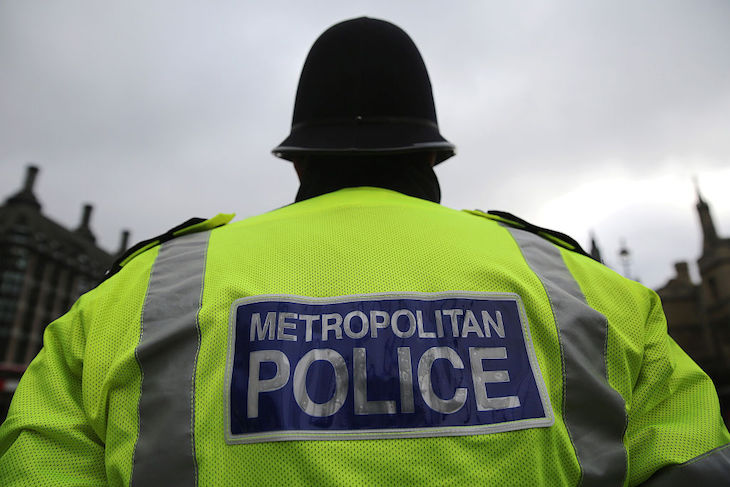Have you ever been strip searched? I have. The date it happened – 7 September 2020 – is etched on my mind. That morning, as part of a security sweep on HMP Wandsworth’s H Wing, a group of male and female officers ‘span’ my cell. With the door closed, the women left, and one of the officers asked me to remove my vest, then shorts, then boxers. Next, they asked me to squat, while one of the men bent down and shone a torch at my anus. I felt vulnerable. My knees shook. When he said: ‘Sorry mate, I promise you this is worse for me than it is for you’, I felt a little better. I think I even laughed. But if a woman had been present I would have felt far more humiliated.
Fortunately the law is clear about how such searches should take place. Section 55 of the Police and Criminal Evidence Act 1984 (PACE) says: ‘A constable may not carry out an intimate search of a person of the opposite sex’. But are some forces allowing transgender officers to carry out searches of prisoners of the opposite sex? A worrying report – State Sanctioned Sexual Assault – by the Women’s Rights Network (WRN), suggests, at the very least, that police are confused on this issue.
I felt vulnerable. My knees shook
The report highlights a policy paper approved by the National Police Chiefs’ Council in December 2021, which called for the ‘adoption of a consistent searching policy for transgender officers and staff across forces nationally’. The paper said that ‘once a transgender colleague has transitioned, they will search persons of the same gender as their own lived gender.’ This, it said, would remove any ‘potential employment barrier for transgender individuals to consider the Police Service as an
employer of choice for transgender individuals.’ But what about the rights of prisoners?
Someone under arrest is very conscious of their powerlessness. In such circumstances, would a vulnerable person feel able to speak up if they were uncomfortable being searched by someone of the opposite sex? The coercive pressure to comply may be overwhelming.
The report claims that, at the time of the December 2021 meeting, 11 police forces were permitting searching on the basis of ‘lived gender’, and a further seven permitted officers who held a Gender Recognition Certificate to ‘search on the basis of their lived gender’. This muddle was clearly unsustainable, but so is the outcome decided by the police chiefs: to possibly allow trans police officers to search people of a different sex.
By late 2022, when the WRN’s Freedom of Information requests were answered, the situation was worse: 35 out of 47 police forces had implemented or were implementing this new policy. The Women’s Rights Network (WRN) said that those responses revealed ‘a lack of consultation with any women’s groups’ and ‘willingness to disregard legislation that opposite-sex searching is likely to be unlawful’. In the year or so since, there is no sign that the police have seen sense.
Imagine you’re a vulnerable woman who’s just been arrested. Around half of women prisoners have been the victims of sexual assault, and the rate for those arrested is likely to be similar. For such women, being searched by a male police officer – and being told that if they refuse or object on the grounds of the officer’s sex they may face further sanction under hate crime legislation – is likely to be intensely distressing.
The police, as with many other organisations, are in a mess when it comes to the gender debate. Indeed, the confusion cuts both ways: for some time, people who’ve been arrested and are facing an intimate search have been able to ask for a search to be carried out by an officer of their self-identified gender. Might this risk compelling officers to conduct opposite sex searches – a situation which could mean they are breaking the law as set out under the Police and Criminal Evidence Act. What kind of country allows this situation to happen? What kind of country allows the police to act in this way? Not a country where the rules of law, or of basic decency matter.






Comments